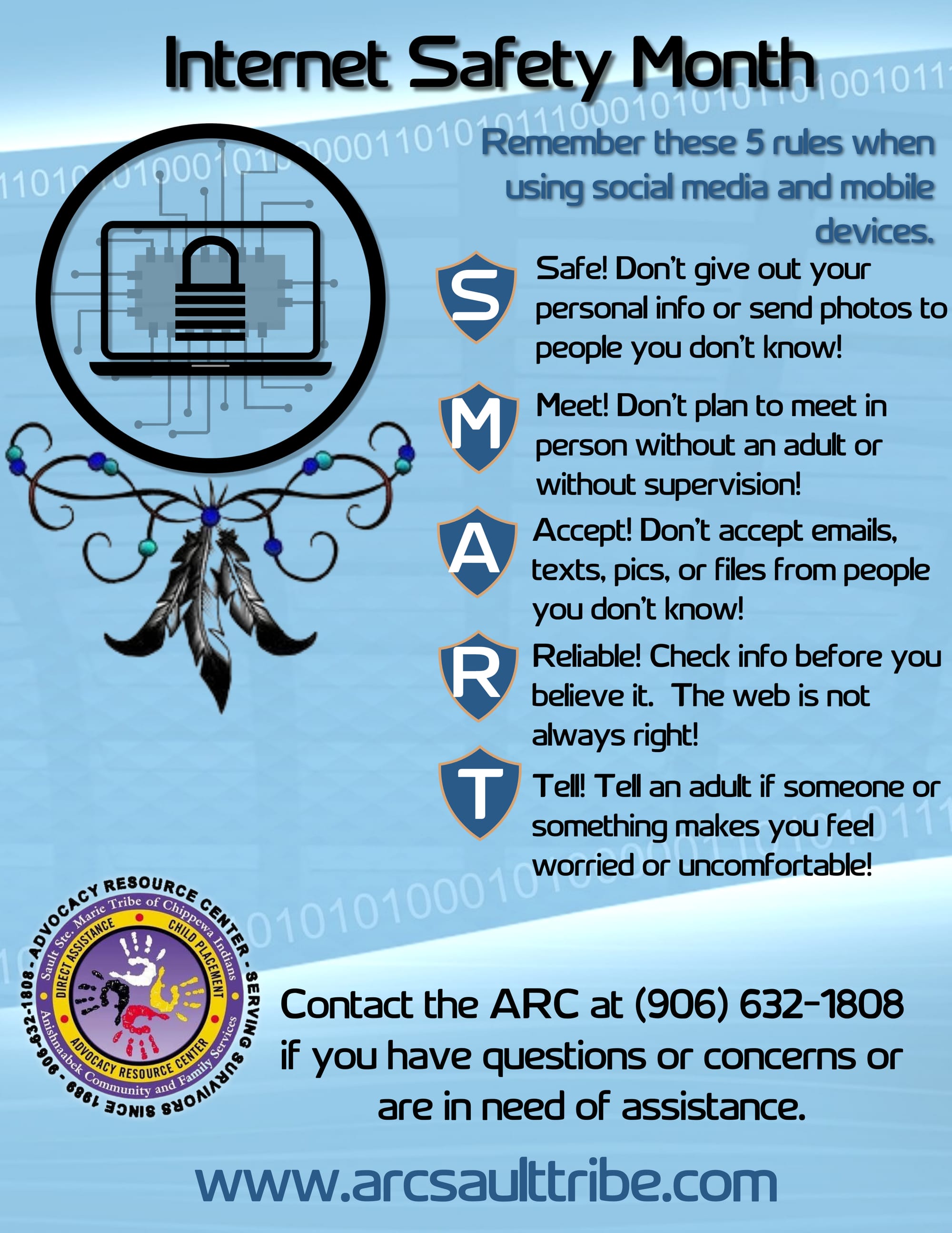July is Internet Safety Month

Children spending more time at home for the summer may mean they are getting more screen time than usual. Gone are the days of children playing outside until the street lights come on. Nowadays, children are less likely to play outside and more likely to be found crashed out on a couch or bed with a phone or tablet. If not glued to a phone, perhaps stuck to a video game for hours on end. Although smart and able to easily navigate most electronic devices, children are still naive and vulnerable to the dangers lurking behind the screens. As parents, grandparents, guardians, babysitters, and daycare providers, we can all participate in helping our children stay safe while they are online.
Communication is key. It begins with regular communication with our children. Not just a one-time reminder in passing to “be careful” on the internet, but periodic reminders of the potential danger that awaits them in cyberspace. We need to have in-depth conversations about why we need our children to be careful. Parents are concerned about their children being connected online daily via social media or online gaming. Cyberbullying, internet predators, sexting, texting and driving, identity theft, too much screen time, and so on. Life is no longer as simple as we remember it to be.
“Generation Z” and “Millennials” are defined as the first social generation to have grown up with access to the Internet and portable digital technology from a young age; members of Generation Z have been dubbed "digital natives.” Therefore, rules and boundaries are necessary for this new generation. Many “Generation X” and even “Baby Boomer” parents or grandparents are learning to navigate with some difficulty and many kickbacks.
Here are some helpful guidelines to follow for practicing “online safety.”
Setting and following family rules that indicate the length of time and behavior on social media and online gaming sites.
Explaining the dangers of sharing personal photos and reminding children and teens that their pictures can fall into the wrong hands and the difficulty of retrieving or deleting the image is nearly impossible.
Teach children and teens never to reveal personal information such as an address or phone number, or share their location online.
Don’t chat with strangers and avoid “friending” anyone they do not know. Never respond to threatening emails, messages, posts, or texts.
Use only a screen name, and do not share passwords with anyone (except parents, guardians, or caregivers).
Only agree to meet up or get together in person with anyone they have met online with parental approval and supervision.
Encourage your child to show you or come to you when they encounter any communication or conversation that is scary, threatening, or hurtful. By having conversations about this subject often, children and teens may feel more comfortable coming to you when they have an issue.
We must teach our children to be kind online with others. The same rules apply online as they should in person. Treat others how you would like to be treated.
Children should ask permission before downloading an app or using a new device.
Using devices close to bedtime should be avoided so the child’s brain can rest and get a healthy amount of sleep.
S.M.A.R.T. is a helpful acronym for children/teens for staying safe online.
S- Safe: Keep safe by being careful not to give out personal information
M-Meet: Meeting someone you have only met online can be dangerous. Only do so with parents’ permission.
A-Accepting: Accepting emails, instant messages, or opening files, pictures, or text from people you don’t know or trust can lead to problems; they may contain viruses or nasty messages.
R-Reliable: Information you find online may not be accurate, or someone online may be lying about who they are. Make sure you check the information before you believe it.
T-Tell: Tell your parent, guardian, caregiver, or a trusted adult if someone or something makes you feel uncomfortable or worried or if you or someone you know is being bullied online.
Fortunately, parents can use several apps to help monitor children/teens’ device usage. Most cost just a few dollars per month; some are free but with limited access. Look for such apps in your device’s app store to help monitor your child’s emails, texts, social media sites, and what content is being searched or shared.
The apps also help limit screen time and filter websites to eliminate risky content. Apps like Bark, Pocket Guardian, Web Watcher, and Family Time are some highly rated apps parents use. Limitly is a free app for Android users only. However, we cannot solely rely on these apps to do the work for us. We must stay involved, communicate, monitor the devices, and stay connected with our children.
Children need real “face time” and honest in-person communication. Be mindful of your screen time and make time for your family away from the internet. Make special memories together and enjoy each other’s company.
Check the Advocacy Resource Centers website at www.arcsaulttribe.com for more information, and follow our Facebook page at www.facebook.com/saulttribeARC for a list of potentially dangerous apps for children and teens. The Advocacy Resource Center can provide advocacy for those needing support services and can be reached at 906-632-1808.